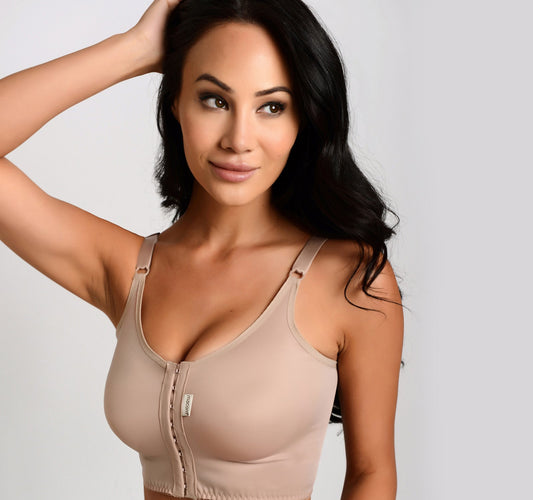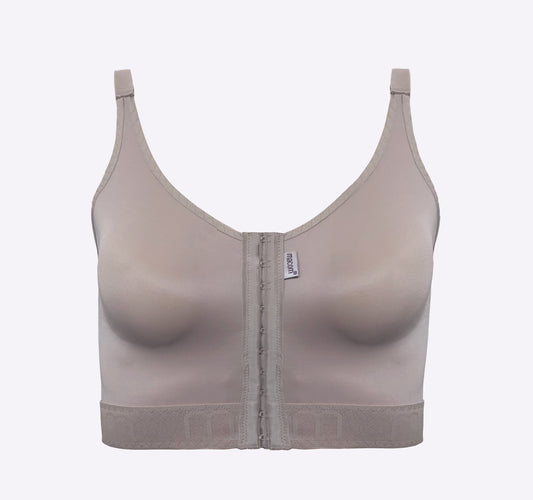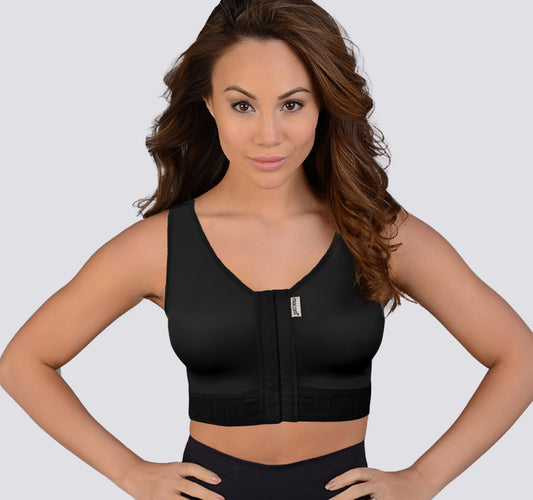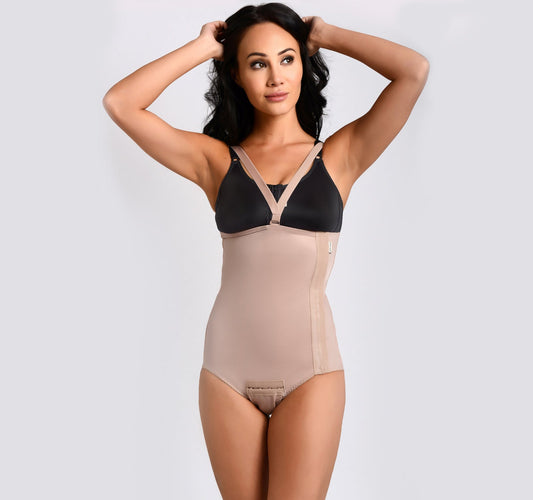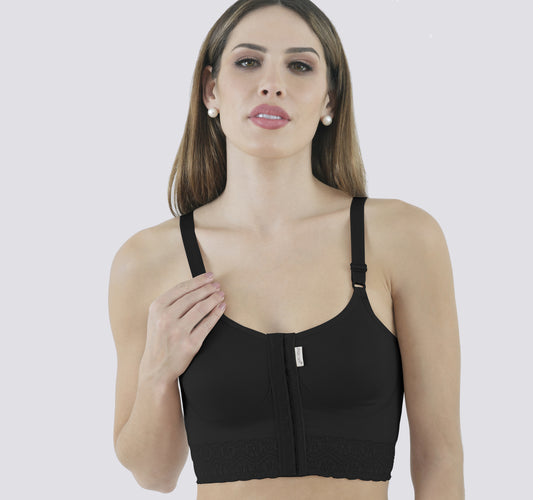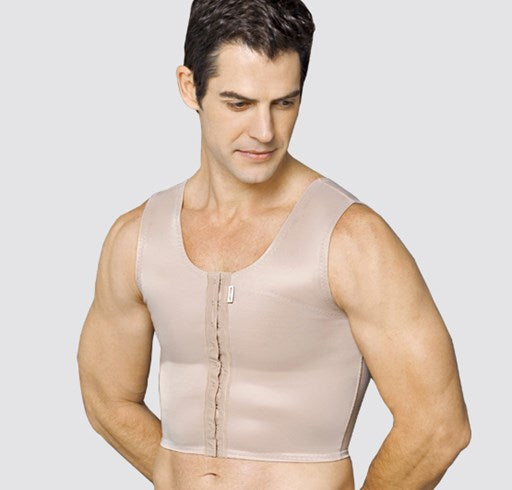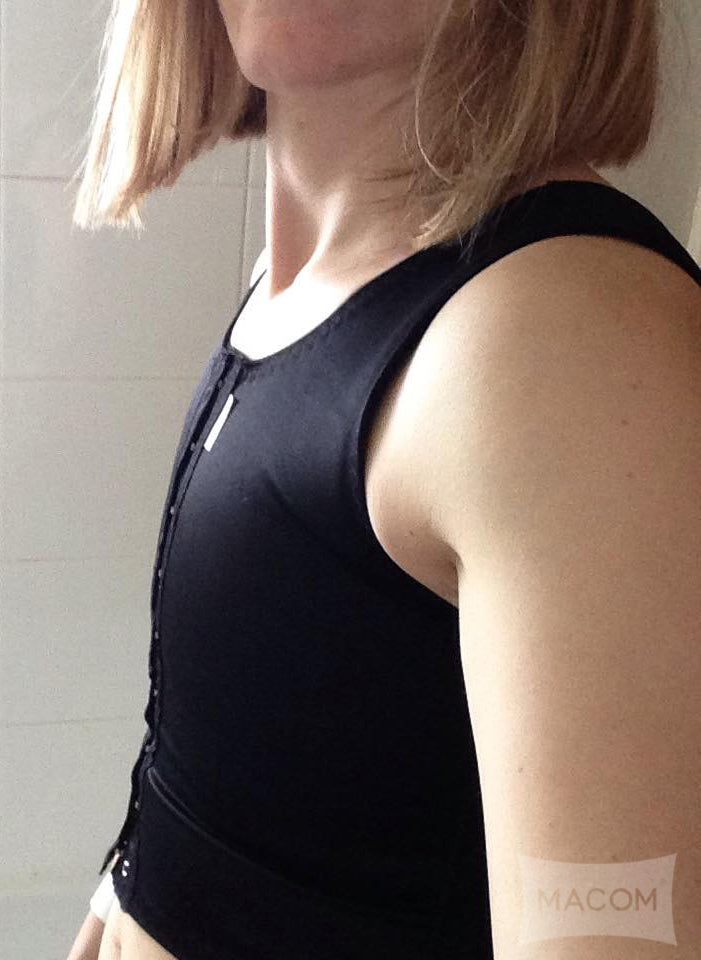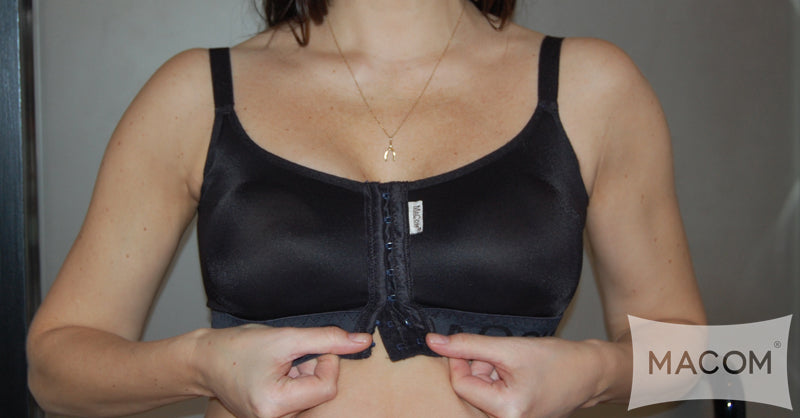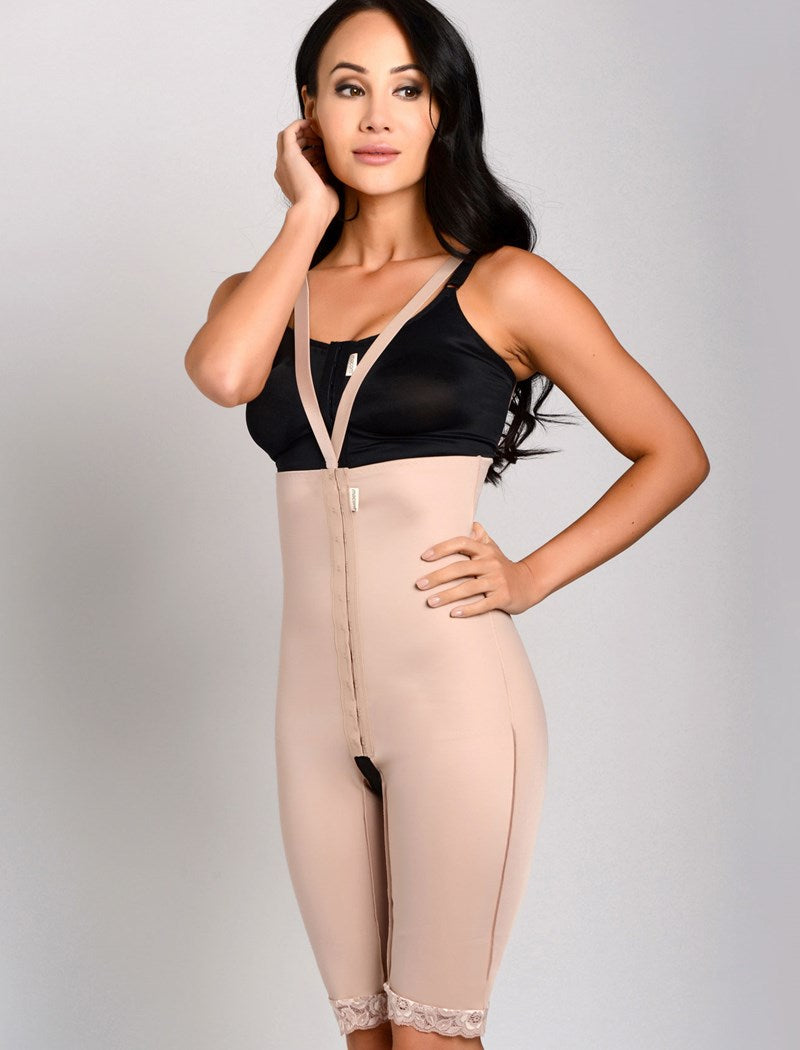Having a solid plan for your post tummy tuck recovery is key to minimising discomfort and maximising results. In this guide, we explain how to take care of yourself at home and what you need to get in place before your tummy tuck surgery. We offer expert advice on choosing your tummy tuck compression garments and answer some common FAQs about tummy tuck recovery.
Why A Tummy Tuck Recovery Plan Is So Important
It is vital you get optimum support, both physically with compression garments and with people around you, to ensure you can rest as much as possible. There is plenty you can organise ahead of time so you can focus on healing rather than organising your recovery.
Having abdominoplasty, aka tummy tuck surgery, will make your belly area sore and swollen and will leave you feeling tired for several weeks. To make this go as smoothly as possible you need to have time set aside to recover and the best support in place to allow you to rest and heal.
How Long Does It Take To Recover From Tummy Tuck Surgery?
It will take 4-6 weeks to recover from tummy tuck surgery. During this time you shouldn't work, exercise or drive. Only after 6 weeks will you really begin to start getting back to your usual routine.
Get The Right Support In Place For Post Tummy Tuck
Arrange For People To Help You
Part of preparing for recovery is ensuring you have the right people around you. Once you are able to leave the medical facility where you have had your procedure, you'll be heading home. You won't be able to do this alone, you'll need someone by your side to help you get home and get settled.
In the first 6 weeks of surgery, you will need someone around to assist you and minimise any exertion to ensure a safe recovery. This will include having someone who can prepare meals for you, help you get up and do even the small tasks.
Within the first couple of days and weeks, you'll need a lot of help. Naturally, as you heal, you'll be able to do more yourself. However, whenever possible, get someone to assist you. The last thing you want to do is strain an incision and delay your overall recovery time.
Have Tummy Tuck Recovery Garments Ready For Each Stage
You'll need to wear a compression garment immediately after your tummy tuck surgery and for 6 weeks post procedure. Compression garments cover and hold your abdominal area to keep the sensitive area covered, take some of the strain from your sore muscles and ensure good blood flow.
You will need to wear a compression garment 24 hrs a day for at least the first 2-4 weeks following your procedure, depending on how fast your body heals.
Because of how long you'll be wearing your compression garment, it is recommended you have more than one. With two, one can be worn while the other is being washed. macom® compression garments need to be hand washed and then air dried, which can take time.
From 6 weeks onwards, you'll be able to begin getting back to your usual routine. This will need to be carefully done and incrementally. You'll also still need to wear a compression garment. Depending on advice from your doctor, you may not need to wear the garment all day and night.
At this point, you will typically move to stage 2 compression garments. These offer more flexible support and are suited to more movement, providing lighter but still necessary compression to your abdominal area.
Eating & Drinking Post Tummy Tuck Surgery
You may not feel as hungry as usual directly after surgery, or your stomach may feel upset. Having bland foods or simple shakes can help you to get food into your system. For example:
- plain rice – steamed or boiled
- boiled chicken - unseasoned
- yoghurt - ideally without fruit or other flavourings
- plain toast - without butter or anything else
Eating very plain foods should only be necessary immediately after surgery. Once your hunger starts to return, you'll be able to get back to eating your normal preferred foods. You may find that broths and simple soups will be easiest to eat in the first few days. Protein drinks or smoothies can also help you get sustenance in the days following surgery when you are mostly sleeping.
Make sure to drink plenty of water as you recover. Avoid caffeine, carbonated drinks and dairy products for at least 3 days (72 hours). These can upset your stomach and some medical professionals recommend avoiding these for at least 4-6 weeks post surgery.
If you find you are struggling to eat or drink, or have questions about what you can consume, then speak to your GP or post-op team to get advice.
How To Sleep After Tummy Tuck Surgery
Sleep is a huge part of recovery. It is when your body will be healing your wounds. Whenever you feel tired you should rest, which is likely to be quite often within the first 24-48 hours after surgery and within the first couple of weeks.
You will typically have to wear a compression garment to sleep in for at least the first 4 weeks of recovery post tummy tuck surgery. A well-fitting and constructed compression garment will be comfortable enough to sleep in.
Depending on your preferred sleep position, you may need to adjust how you lie in bed while recovering.
Because you will have incisions around your abdominal area, lying flat on your back will not work. You can use additional pillows to raise your upper body to create a more bent position. Alternatively, sleeping on a recliner, where it holds you in place, can be a good way to avoid strain and stop yourself from turning over in your sleep.
Sleeping on the side of your surgical area will be too painful in the first few weeks after surgery. You should be able to sleep on that side, if you prefer, about 3-5 weeks post operation.
Try To Walk A Little Each Day
Once you have the energy to get up, and probably the urge to move from your bed, you can start walking a little each day. Don't go far at first, stick to getting to a nearby chair, perhaps just getting up and then sitting back down for a first attempt. Gradually increase this as your strength returns. It's good to move a little while still wearing your compression garment to support your body.
Avoiding Lifting Objects & Generally Straining Your Abdominal Muscles
For the first 6-8 weeks post tummy tuck, it is important to lift as little as possible. Certainly, you should not be trying to move any heavy objects. If you aren't sure what counts as a heavy object, it is anything that causes you to strain when lifting. At the start this could be as little as a large book.
Recovery is a slow process. Avoiding straining your abdominal muscles will help you recover as quickly as possible. Don't rush back to exercising, especially not your abdominal exercises, until you are cleared by your medical team.
Post Tummy Tuck Recovery FAQs
What Happens If You Don't Wear A Compression Garment After Tummy Tuck Surgery?
In short, your recovery will take longer. Swelling won't reduce as fast, you will likely experience more discomfort and pain, and the final shape of your abdomen will likely be affected. Not wearing a compression garment can also lead to complications such as infection and blood clots, and delay your healing even further.
How Long After Your Tummy Tuck Can You Shower?
You can begin showering 48 hrs post operation, assuming you haven't had any complications. This typically gives enough time for the fresh wounds to start healing. Your recovery bandages will be waterproof following surgery to allow for this.
You should have someone with you when showering, both to assist you getting to the shower and to be there in case of lightheadedness or dizziness, which is not uncommon after surgery.
How Often Should I Clean My Tummy Tuck Incision?
You should wash your incision area daily following tummy tuck surgery. This can be done simply with fresh water and a clean, soft cloth. Pat the area dry before re-applying any bandages or gauze, and your compression garment. Avoid using soaps, antiseptics or alcohol wipes. In the first days following tummy tuck surgery, you may need someone else to help you do this.
Consult your doctor if you have any queries about your recovery or what you should or shouldn't do as your recovery progresses.






